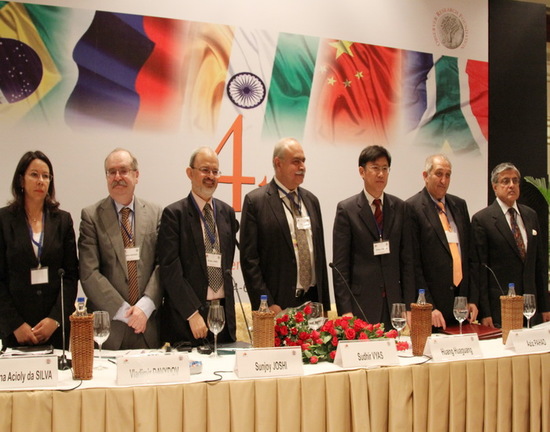Are the BRICS a coalition, an alliance or a consultation group? Nobody really knows, but commentators in the international media – particularly in Europe and the United States – usually agree that the group is far too diverse to ever agree on anything.
However, over the past two years, the BRICS have slowly, but steadily evolved, deepening cooperation on a remarkable number of levels. The BRICS countries’ ministers of trade, health, agriculture, defense, foreign affairs and finance meet regularly for consultation. The BRICS’ Central Bank Presidents meet to assess the state of the global economy. BRICS’ Presidents meet prior to G20 summits and other important conferences, such as the recent Rio+20. Prior to the yearly leaders’ summits, the BRICS Business Forum brings together leaders from the private sector. A BRICS task force seeks to reduce trade barriers between the BRICS’ economies. Another working group, which just met in Rio de Janeiro, is working on a report that assesses the viability of a BRICS Development Bank, which will be presented at the leaders’ summit in South Africa in March 2013. In addition, think tanks from each BRICS member country organize a yearly academic forum, during which academics and policy analysts produce a series of policy recommendations for their governments.
Over the past years, more than 50 BRICS’ ministerial meetings have taken place all over the world. Assessing the tangible outcomes of these encounters is difficult, but given the considerable opportunity cost they generate, they are proof of the BRICS’ governments’ conviction that closer cooperation will bring real benefits. After all, ministers and heads of government would quickly stop flying around the world to meet their BRICS counterparts if they believed the outfit had no future.
Yet, is this process of institutionalization sustainable? What exactly do the respective ministers expect from closer cooperation? Certainly the IMF and the G20 are among the most visible platforms where the BRICS have cooperated effectively, as they share common goals, such as shifting the G20’s focus on development and reforming the distribution of voting power in the IMF. The less visible, but certainly no less important work of the BRICS group is probably too technical for many international observers to take notice. Yet those who seek to truly assess whether the BRICS outfit matters or not will have to analyze both the glitz and geopolitical statements at the yearly summits, as well as the results and working papers of the countless meetings of BRICS’ bureaucrats and public policy specialists in the ministries who seek to strengthen intra-BRICS relations.
Read also:
Why the BRICS should forget Jim O’Neill
Could BRICS challenge the West on Iran?
Photo credit: CCCWS









